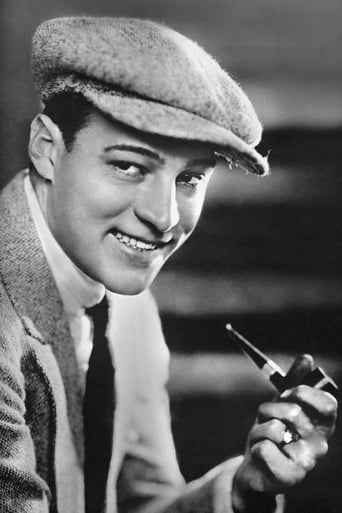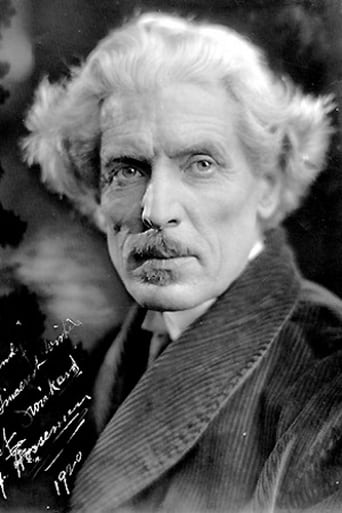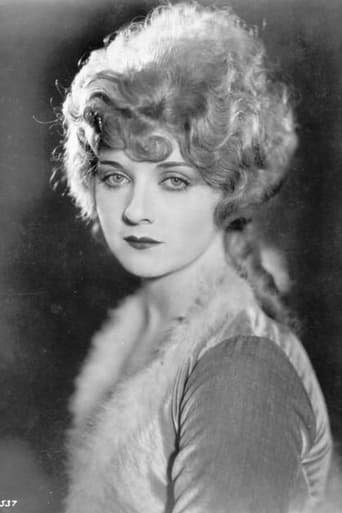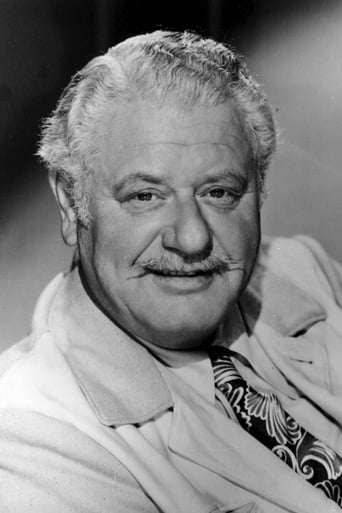UnowPriceless
hyped garbage
Claysaba
Excellent, Without a doubt!!
Loui Blair
It's a feast for the eyes. But what really makes this dramedy work is the acting.
gavin6942
An extended family split up in France and Germany find themselves on opposing sides of the battlefield during World War I.Often regarded as one of the first true anti-war films, it had a huge cultural impact and became the top-grossing film of 1921, beating out Charlie Chaplin's "The Kid". The film turned then-little-known actor Rudolph Valentino into a superstar and associated him with the image of the Latin Lover. The film also inspired a tango craze and such fashion fads as gaucho pants. The film was masterminded by June Mathis, who, with its success, became one of the most powerful women in Hollywood at the time.Despite this -- the sales, the Valentino connection, and more... this is a little-known film and one that is rarely seen. Even being preserved by the Library of Congress (which is how it got on my to-see list) has not really raised its stature much. And yet, it is a minor silent epic that could be seen as the equal of anything DeMille or Griffith put out.
MissSimonetta
The Four Horsemen of the Apocalypse (1921) was the biggest blockbuster of its day and among the highest-grossing films of the 1920s. Today, it is the most well-known film of the unsung director Rex Ingram, notable for being the film which launched the career of heartthrob Rudolph Valentino with the iconic tango sequence, and it is lauded as an early anti-war picture. But is it really deserving of the praise and attention it gets outside of historical significance? The film itself is unevenly paced, even stately. One feels every slow minute of its two hours. Ingram's direction is good though, and the visuals are stunning, as they always are in an Ingram production.The acting is uneven too. Valentino does well as Julio, going from a callow philanderer to a selfless war hero. His more restrained technique is a great contrast to the eye-bulging insanity he displays in his most well-known film, that masterpiece of kitsch, The Sheik (1921). However, I think his best performance was still ahead of him in The Eagle (1925), where he juggles drama, comedy, action, and sensual romance with ease.Alice Terry is not one of my favorite actresses, as I find she doesn't possess much charisma for a leading lady. This is probably one of her better performances, a restrained portrait of romantic yearning and a struggle between her happiness and the welfare of her much older husband.Though many have praised his performance, I found Joseph Swickard to be almost embarrassing as Valentino's father. He reacts to the atrocities around him with bulging eyes and cartoonish trembling. When he collapses while telling Julio to be ruthless in war, it comes across as unintentionally comedic rather than emotional.I also disagree with the notion that this is an anti-war picture. The depiction of the Germans in this film is as extreme as the cartoonish villainy of Erich von Stroheim's nurse-raping and child-murdering Prussian lieutenant in The Heart of Humanity (1918). While the characters regret the casualties of the war, the film suggests that the war had to happen because those evil Germans had to be stopped. The enemy are not treated like people; they're all wicked and that is definitely reminiscent of wartime propaganda, not a movie arguing for pacifism or the senselessness of war.Honestly, I wish Ingram were more remembered for his excellent production of Scaramouche (1923), which is even greater than the more celebrated 1953 remake. It also has better performances and pacing. Four Horsemen is a decent epic, but it isn't anymore memorable than any other by-the-numbers blockbuster Hollywood had and has cranked out before or after.
wes-connors
Europe is "a world old in hatred and bloodshed, where nation is crowded against nation and creed against creed, centuries of war have sown their bitter seed, and the fires of resentment smoldering beneath the crust of civilization but await the breaking of the Seven Seals of Prophecy to start a mighty conflagration." But, in the Americas, "boundless space offers a haven to the alien, and ancient hatreds are forgotten." In the "New World", Pomeroy Cannon (as Madariaga) and his family thrive. Mr. Cannon's eldest daughter Bridgetta Clark (as Luisa) marries German Alan Hale (as Karl von Hartrott), and they have three sons. Youngest daughter Mabel Van Buren (as Elena) marries French Josef Swickard (as Marcelo Desnoyers), and they sire son Rudolph Valentino (as Julio Desnoyers) and daughter Virginia Warwick (as Chichi).From the preceding family of characters, you should pay relatively close attention to Mr. Valentino's "Julio" and Mr. Swickard's "Desnoyers", who emerge as two of the drama's three leading players; they are patriarch Cannon's favorite grandson and son, respectively. When the old man dies, the sisters' families move back to their husbands' home countries of Germany and France. Valentino studies art, thrills the French with his "Argentine Tango", and begins an affair with married woman Alice Terry (as Marguerite Laurier). Ms. Terry, wife of director Rex Ingram, is the third player of prominence.Several supporting players stand out; perhaps none more than two men Valentino becomes acquainted with, in France: servile companion Bowditch M. Turner (as Argensola) and mysterious "man upstairs" (hint, hint!) Nigel de Brulier (as Tchernoff). Eventually, events culminate into "The Four Horsemen of the Apocalypse" fulfilling its promise; it becomes a story of The Great War (aka World War I). Ibáñez (and adapter June Mathis)' "Four Horsemen" are: Conquest, War, Pestilence, and Death. The war scenes are exciting.In a great crosscutting sequence, Valentino throws Mr. Turner out of the apartment, so he can "entertain" Terry. Due to a downpour, Turner goes upstairs to visit with mysterious Mr. de Brulier, who cuts into the forbidden fruit of an apple, while Valentino (off screen) similarly removes Terry's "beautiful covering" and "cloak of virtue." No sexual relations are shown, but director Ingram clearly makes his point. And, all of this occurs as the Great War erupts.The film's overall thesis is unsteady, at times; and, there are little things (like animals) to distract - does nurse Terry's husband fail to recognize her voice? Award-worthy Valentino and Terry speak French in France, by the way - regardé, for example, "Oui" for "Yes". "The Four Horsemen of the Apocalypse" is a triumph for Mr. Ingram, photographer John F. Seitzand, and company. Despite some flaws, it's an indispensable film. ********* The Four Horsemen of the Apocalypse (3/6/21) Rex Ingram ~ Rudolph Valentino, Alice Terry, Josef Swickard, Alan Hale
Boba_Fett1138
The first halve of the movie already makes a great movie on its own, in which it focuses on the more dramatic and romantic aspects. Everything you would expect from a Rudolph Valentino movie. But the movie gets even better halve way trough, starting with the prophecy of the four horseman of the apocalypse, at the dawn of WW I. The movie then becomes such a great and powerful anti-war movie. It's the sort of 'war and peace' approach of the movie that makes it so great as well as effective.In its storytelling and compositions the movie was at least 20 years ahead of its time. At times while watching this movie it's really hard to believe that this movie was made in the very early '20's. It has some amazing powerful striking images, such as the visualization of the actual four horseman of the apocalypse and a couple of sequence toward the ending, which I'm not going to spoil.The movie features some religious themes, but it isn't done in a preachy or distracting way. It's sort of done in the same way as in the "Ben-Hur" movies. It's beautifully weaved into the story, without scaring off the non-religious persons.The movie can be a called an epic because of its story and storytelling but also because of its images. The early battle sequences are all grand and impressive looking (although its obvious that some of it is simply archive footage, from presumable WW I) and so are its settings. It of course helps that the movie is set throughout in different places and continents as well.Despite that this is Rudolph Valentino's first real big movie role and this was the movie that made him a big star, it isn't really a Valentino movie, in the sense of that he is the one and main hero of the movie. The movie throughout focuses on a lot of character and only in the middle part it focuses prominently on Valentino.Truly one of the best and most powerful movies out of the silent era.10/10http://bobafett1138.blogspot.com/




